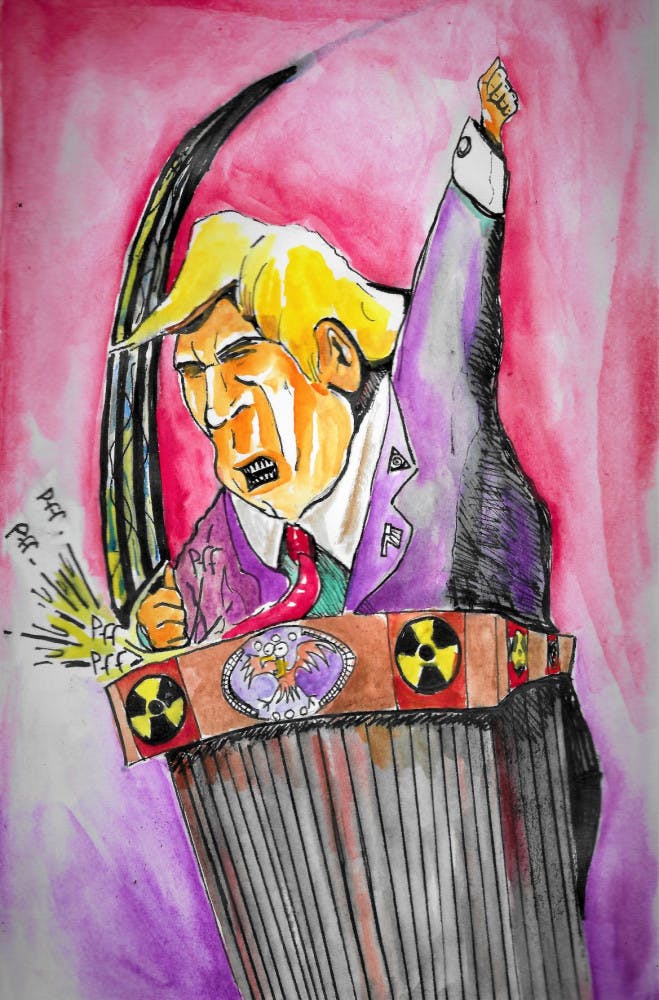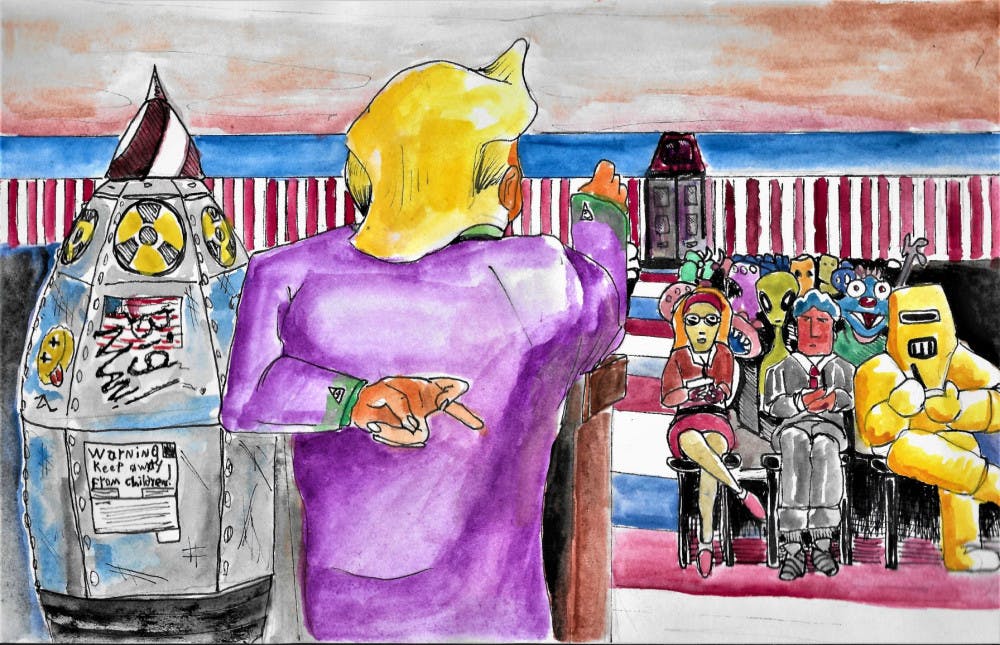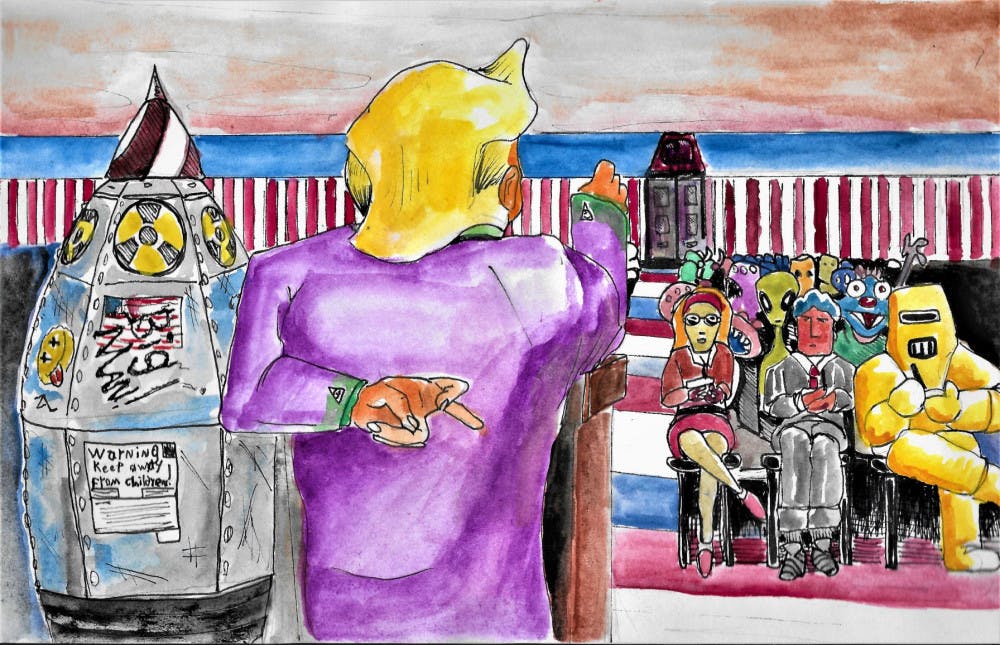After North Korea’s sixth and latest nuclear test, President Donald Trump was quoted on Wednesday by USA Today saying “We will not be putting up with what’s happening with North Korea,†and “We’re going to see what happens.â€
These statements differ somewhat from last month when North Korea threatened a nuclear strike on the “heart of the U.S†and the president responded saying that North Korea “best not make any more threats†and would be met with “fire and fury, like the world has never seen.â€
Stephen Stein, associate professor of history at the University of Memphis, said that statements like “fire and fury†are not likely to change North Korea’s behavior. He said the country will probably continue to fire missiles into the ocean until their leaders get bored or there are no more missiles.
“Unless supported by specific action, threats of ‘fire and fury’ are pointless and unlikely to change North Korean behavior,†Stein said. “The only way to get North Korea to cease these provocations is to convince China to apply pressure to North Korea. Only China has the economic ties to North Korea that give it any leverage in this situation.â€
On Aug. 28th, North Korea fired ballistic missiles over the Japanese island Hokkaido, which ultimately landed in the ocean, according to CNN. Trump then warned the missiles increased North Korea’s isolation regionally and nationally, and that “all options are on the table,†according to The New York Times.
In spite of the back and forth banter between the two countries, Stein said war between the U.S. and North Korea is unlikely to occur.
“It is very unlikely that North Korea will start a war by invading across the 38th Parallel as it did in 1950,†Stein said. “So, all the United States needs to do to avoid war is to avoid being provoked by North Korea’s missile tests. U.S. efforts to pressure North Korea to limit its development of nuclear weapons and ballistic missiles have failed repeatedly over the last 20 years, and there is no reason to expect them to succeed in the future.â€

Nicole Detraz, a political science professor at the U of M, said there is no consensus on the best way for the U.S. to avoid war with North Korea. After World War II, the United Nations was created based on the idea that security should be treated as a global issue and the best way was to collectively address threats, according to Detraz. She also said others argue that individual countries are responsible for security and war.
“Even during past administrations, which have advocated the second approach, there was still some attempt to conform to international norms of multilateralism and cooperation,†Detraz said. “For instance, George W. Bush’s ‘coalition of the willing’ during the Iraq war was an attempt to demonstrate multilateral support for the military endeavor.â€
Detraz agreed with Stein that the president’s “fire and fury†rhetoric is just “tough talk†and will not actually do much to stop North Korea’s aggressive behavior. Still, doing nothing is not palatable, according to Detraz.
“Doing nothing is not palatable because the U.S. and others want to send a message that they regard North Korea’s behavior as unacceptable,†Detraz said. “What the current administration has relied on so far is largely a continuation of what came before – the use of sanctions to try to shape behavior.â€





